McKelvey Engineering


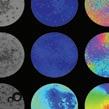







year in review | 2022-23
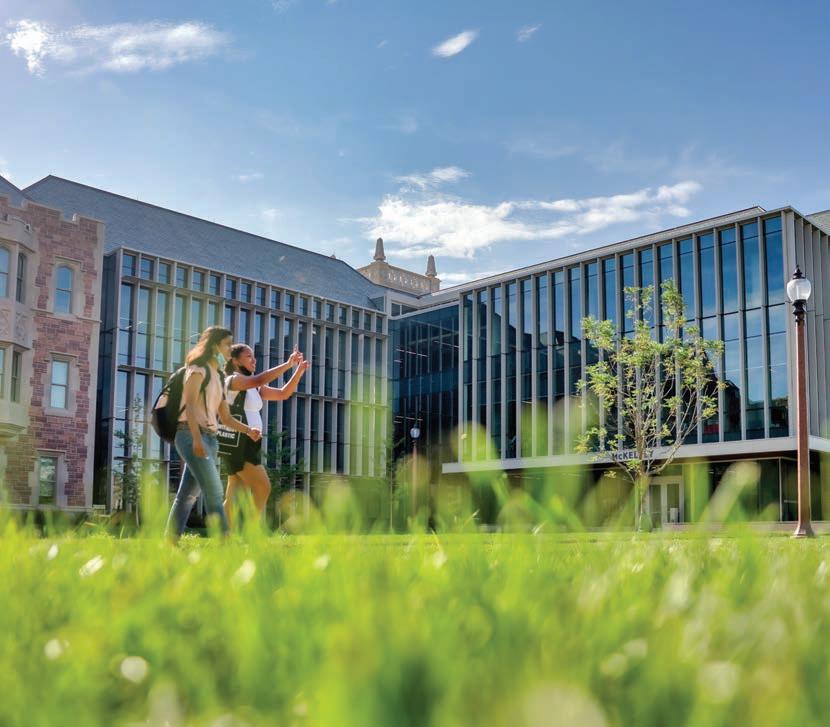






2 | MCKELVEY SCHOOL OF ENGINEERING
students
Full-time master’s students 304 Part-time master’s students
total enrollment fall 2022
1,420 Undergraduate
758
552 PhD students
Our Students
60%






of first-year students are women and/or students of color
41%
are women compared to the national average of ~22%
one-third are students of color



70% of engineering undergraduates pursue a second degree, another major or a minor
23%
of WashU student athletes are engineering students
YEAR IN REVIEW 2022-23 | 3
Undergraduate Master’s PhD 50&42
Undergraduate students 9% Full-time master’s students 59% PhD students 67% First-generation college students 20% Pell Grant-eligible 28% international students first-year students: women students application data for fall 2022 6,438 applied 3,462
~49% admitted did you know ?
Engineers come from 50 states, the District of Columbia, Puerto Rico and 42 countries.
applied
nearly
36% 27% 36%
780 applied
A sound approach for effective gene therapy delivery to brain

Researchers have been experimenting with different ways to deliver genes to the brain to treat central nervous system diseases and tumors. One of the obstacles, however, is the ability to penetrate the blood-brain barrier while having minimal effect on the other organs in the body. Hong Chen, associate professor of biomedical engineering and of neurosurgery in the School of Medicine, and her team overcame that obstacle using focused ultrasound intranasal delivery (FUSIN). They found that the intranasally delivered gene therapy had comparable or better outcomes than existing methods while having minimal effect on the body’s other organs.
McKelvey Engineering faculty awarded $10.7 million in federal clean energy grants
The world’s changing climate has led the United States to set a goal of a net-zero emissions economy by 2050. Young-Shin Jun, Zhen (Jason) He, Vijay Ramani and Fuzhong Zhang, all professors in the Department of Energy, Environmental & Chemical Engineering, are working toward that goal with a combined $10.7 million in newly awarded grants from the U.S. Department of Energy (DOE). The research projects will focus on creating new clean energy technologies that address energy production, emissions, critical element recovery and durable carbon dioxide storage.
Machine learning generates pictures of proteins in 5D
By combining machine learning with the laws of physics, researchers in the lab of Matthew Lew, associate professor in the Preston M. Green Department of Electrical & Systems Engineering, have been able to sort out the orientation and position of overlapping single molecules in 5D from a single image. The five dimensions in question aren’t new, hidden spatial dimensions; instead, a team headed by Tingting Wu, a PhD student in the imaging sciences program, designed a system that could tell her the orientation of a molecule in 3D space as well as its position in 2D, five parameters from a single, noisy, pixelated image.
new centers
Center for Biomolecular Condensates (CBC)
Personalized prediction of depression treatment outcomes with wearables
A team of researchers led by Chenyang Lu, the Fullgraf Professor in the McKelvey School of Engineering, and at the University of Illinois Chicago used data from wearable devices to predict outcomes of treatment for depression on individuals who took part in a randomized clinical trial. They developed a novel machine learning model that analyzes data from patients randomly selected to receive treatment and those who did not receive treatment — instead of developing a separate model for each group. This unified multi-task model is a step toward personalized medicine, in which physicians design a treatment plan specific to each patient’s needs and predict outcome based on an individual’s data.


‘Simple yet powerful’: Seeing cell secretion like never before

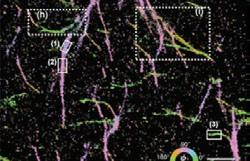
Washington University in St. Louis researchers have developed a novel method for visualizing the proteins secreted by cells with stunning resolution. The researchers, led by Srikanth Singamaneni, the Lilyan & E. Lisle Hughes Professor of Mechanical Engineering & Materials Science, and Anushree Seth, a former postdoctoral scholar in Singamaneni’s lab, developed the highly-sensitive FluoroDOT assay, which can see and measure proteins secreted by a single cell in about 30 minutes. With collaborators, they found that the FluoroDOT assay is versatile, low-cost and adaptable to any laboratory setting and has the potential to provide a more comprehensive look at these proteins than the widely used existing assays. The FluoroDOT assay, a plasmon-enhanced nanolabel developed in Singamaneni’s lab that is 16,000 times brighter than conventional fluorescence labels.
The Center for Biomolecular Condensates is an interdisciplinary center that supports researchers from engineering and basic sciences who focus on the cell. CBC members are leading technological advances and a better understanding of cellular level phenotypes that have an impact on modeling complex diseases and the development of novel materials based on active living matter.
Center for Women’s Health Engineering
Building on WashU’s strengths within the McKelvey School of Engineering and the School of Medicine, including the Department of Obstetrics & Gynecology, the Center for Women’s Health Engineering advances novel engineering approaches to prevention, diagnosis and treatment in the field and train the next generation of researchers, entrepreneurs and policy leaders.
4 | MCKELVEY SCHOOL OF ENGINEERING
Buzzworthy News
Joshua Yuan brings his robust research in energy and environmental sustainability, as well as experience in entrepreneurship, to the growing department.

Financials
expenses
Salaries & benefits: $66.2m

Gift aid: $54.3m
Central Fiscal Unit/space: $35.5m
Operations: $22m
Faculty & Research
105
tenured/tenure-track faculty

165 full-time faculty
9:1 undergraduate student-to-faculty ratio
total research awards (fy22)

36.9



Foundation: $3m

Industry: $1.3m

Institute of Higher Ed.: $4.5m
Other government: $205k
Other private sources: $239k
Federal: $27.5m
federal sponsors
NIH: $15.3m
NSF: $4.9m
DOD: $3.5m
DOE: $1.8m




NASA: $1.3m
EPA: $744k
$198.6m
total gross revenue $178.0m total expenses $19.0m
strategic operating & capital reserves $1.6m net results

sources of income (fy22)
research funding sources (fy22 expenditures)
Tuition: $123.9m
Grants & contracts: $37.9m
Gifts & endowment: $32.7m
Other income: $4.1m
YEAR IN REVIEW 2022-23 | 5
new chair
Aaron Bobick, Dean and the James M. McKelvey Professor
McKelvey School of Engineering Dean
Yuan named chair of Energy, Environmental & Chemical Engineering
63% Post-graduation employment
25% Graduate, medical or law school
12% Internship, co-op, research, other
$
45% of McKelvey Engineering undergraduate students receive financial aid
starting salary by major
Bachelor of Science reported average starting salaries for 2022 graduates

$82,400
Abbott Accenture Anheuser-Busch
Apple AT&T
Bain & Co. Boeing
Bloomberg LP Burns & McDonnell Capital One
Cisco Deloitte Consulting LLP

Environmental Systems Design

Epic
General Motors
Goldman Sachs
Google
Johnson & Johnson
JP Morgan Chase & Co.
Lockheed Martin Mastercard McKinsey & Co.

Meta Microsoft Raytheon Salesforce
SpaceX Tesla
Consultants
Biomedical Engineering
$74,125
Chemical Engineering
$103,000 Computer Engineering
$112,527
Computer Science
$84,036
Boston University
Carnegie Mellon University
Case Western Reserve University
Columbia University
Cornell University
CUNY
Duke University
Florida International University
Georgetown University
Imperial College
London
Northwestern University
NYU
Rice University
Royal College of Art
Stanford University
Texas A&M
University School of Medicine
Tufts University
UCI
UCSD
University College Dublin
University of Alberta
University of CaliforniaBerkeley
University of Chicago
University of Cincinnati
University of ColoradoBoulder
University of Michigan
Yale University
Electrical Engineering
$77,667
Environmental Engineering
$83,989
Mechanical Engineering
$83,260
Systems Engineering
6 | MCKELVEY SCHOOL OF ENGINEERING
Trinity
top companies top graduate schools & postdoc fellowships
Outcomes
Academic Programs
Biomedical Engineering
Undergraduate programs:
» Biomedical Data Science (minor)
» Biomedical Engineering
Graduate programs:
» PhD in Biomedical Engineering
» MS in Biomedical Engineering
» MS in Imaging Science
» Certificate in Medical Physics
Computer Science & Engineering
Undergraduate programs:
» Bioinformatics (minor)
» Computer Engineering
» Computer Science
» Computer Science + Economics
» Computer Science + Math
» Data Science
» Human-Computer Interaction (minor)
» Business and Computer Science (joint program)
Graduate programs:
» PhD in Computer Engineering
» PhD in Computer Science
» MS in Computer Engineering
» MS in Computer Science
» MS in Cybersecurity Engineering
» MEng in Computer Science & Engineering
» Certificate in Data Mining & Machine Learning
Preston M. Green Department of Electrical & Systems Engineering
Undergraduate programs:
» Electrical Engineering
» Mechatronics (minor)
» Robotics (minor)
» Systems Science & Engineering
» Quantum Engineering (minor)
» Financial Engineering (second major only)
Graduate programs:
» PhD or DSc in Electrical Engineering
» PhD or DSc in Systems Science & Mathematics
» MS in Data Analytics and Statistics
» MS in Electrical Engineering
» MS in Systems Science & Mathematics
» Certificate in Imaging Science & Engineering
Energy, Environmental & Chemical Engineering
Undergraduate programs:
» Chemical Engineering
» Environmental Engineering
» Energy Engineering (minor)
Graduate programs:
» PhD in Energy, Environmental & Chemical Engineering
» MS in Energy, Environmental & Chemical Engineering
» MEng in Energy, Environmental & Chemical Engineering
» MEng/MBA program
Mechanical Engineering & Materials Science
Undergraduate programs:
» Aerospace Engineering (minor)
» Materials Science and Engineering (minor)
» Mechanical Engineering
» Nanoscale Science & Engineering (minor)
Graduate programs:
» PhD in Aerospace Engineering
» PhD in Mechanical Engineering
» MS in Aerospace Engineering
» MS in Materials Science & Engineering
» MS in Mechanical Engineering
» MEng in Mechanical Engineering
Henry Edwin Sever Institute
Graduate programs:
» Master’s in Construction Management
» Master’s in Cybersecurity Management
» Master’s in Engineering Management
» Master’s in Health Care Operational Excellence
» Master’s in Information Systems Management
» Master’s In Project Management
Interdisciplinary programs
Graduate programs:
» PhD in Computational & Data Sciences
» PhD in Imaging Science
» PhD in Materials Science & Engineering
UMSL/WashU Joint Engineering
Undergraduate Program
Undergraduate programs:
» Civil Engineering
» Electrical Engineering
» Mechanical Engineering
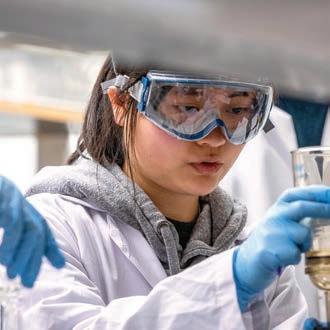

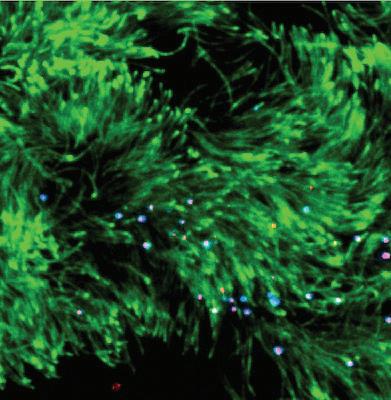


non - profit org. u.s. postage paid st. louis, mo permit no. 2535 engineering.wustl.edu • #WashUengineers MSC 1100-0122-03 • One Brookings Drive St. Louis, MO 63130-4899 952 Degrees Awarded summer 2021, fall 2021 and spring 2022 #14 Biomedical Engineering Graduate Program u.s. news & world report 2022-23 highlights #13 2023 Best Colleges for Engineering niche #26 Best Computer Science Bachelor’s Degree bestaccreditedcolleges.org





















































